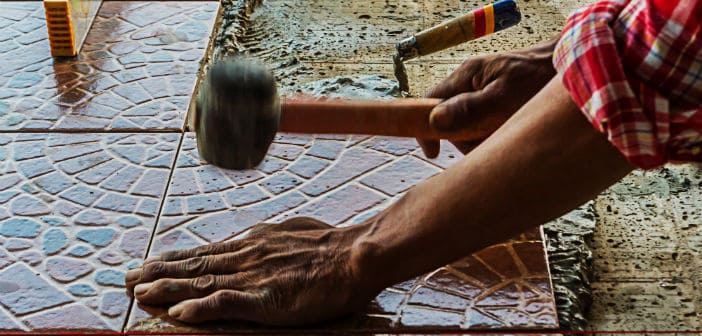https://dannydivito.com
Fixer-Upper potential income streams when dealing with rentals. Rental properties have the potential to net you a return in two different ways: You can charge more in rent than you pay on the mortgage, resulting a stream of revenue that could last indefinitely, and you can invest in a property with the potential to appreciate over time, so you can eventually sell the property for more than you paid for it.
Fixer-Upper
If you can get a property for less money up front, you’ll have the potential to earn more money. This idea is partially why “fixer-upper” properties are so popular. Prospective landlords or property investors believe they can purchase a problematic property for a low amount of money, invest some extra time and money into making it more livable, and collect on the home’s final value (which they expect to be higher than the combination of their total investments).
But are these properties really worth your time and money?
Judge the Scale
Obviously, not all fixer-uppers are going to require the same amount of work, and what qualifies as a “fixer-upper” to you may not to someone else. Almost any property you purchase is going to require at least some repair and maintenance before you try to attract tenants for it or sell it to other buyers; the question is, how much is it going to take?
If you can knock out the repairs in a weekend, such as by replacing the carpet, repainting the walls, and having the place professionally cleaned, you shouldn’t worry—these projects don’t have the power to significantly change the value of your investment.
Related: 4 Ways Real Estate Can Help Offset the Staggering Cost of Having Kids for Parents
However, if you’re looking at a project that could take months to complete, you may want to reconsider. Not only will it take a much bigger investment, it will also delay you from collecting income to start offsetting your investment.

Do the Math
This should go without saying, but before you buy a property with the intention of flipping or fixing it, you need to do the math.
Consider:
- The cost of your planned projects. Get quotes from a few different contractors, or visit your local home improvement store to estimate the cost of the supplies you’ll need. Come up with a total figure for making all the renovations you’d like.
- A buffer to protect you from unforeseen events. When you’re done estimating costs, increase your total estimate by at least 5 to 10 percent. There will almost certainly be new repairs you didn’t notice or unforeseen developments that make your initial projections more expensive. This buffer will serve to protect you and your investment.
- The expected ROI of your projects. Next, evaluate the expected ROI for each of your projects (again, estimating conservatively). Some projects, like installing new windows or painting your home, will return almost as much home value as you spend on them. Others won’t pay off nearly as much.
If your projects will increase the value of your home or the price you can charge in rent by an amount that exceeds even your most conservative cost estimates, it might be worth pulling the trigger.
Value Your Time
Here’s another variable to consider: the value of your time. Let’s say you plan on doing a lot of the repairs yourself and you’ve determined that $10,000 in supplies will be enough to get the job done. At the end of the day, that could boost the value of your property by $15,000.
Related: Florida Golf: Top 75 Public Courses
This seems like a no-brainer, but you should also consider how many hours the project is going to take. Let’s say it’s going to take 100 hours of work to finish the repairs, and in your normal job, you make $60 an hour. Essentially, you’ll need to spend $6,000 worth of your time to complete the repairs. This brings your total costs up to $16,000 and making the project not worth it. If you enjoy doing the work, that’s one thing—but don’t count your labor as free.

Trust Your Expertise
You should also taper your expectations based on how much experience you’ve had. If you’ve never flipped a house before, you should expect to make lots of mistakes. This includes misestimating your costs and expected returns. It’s ideal to start with smaller, less risky projects if you don’t have much experience. If you’ve done this many times before, trust your gut. You probably know when a fixer-upper is worth the investment and when it isn’t.
Ultimately, there’s no single answer to whether a fixer-upper is worth your time or money; there are too many variables to consider. However, with the right calculations and enough self-awareness to determine your own judgment skills, you can make the right call.





